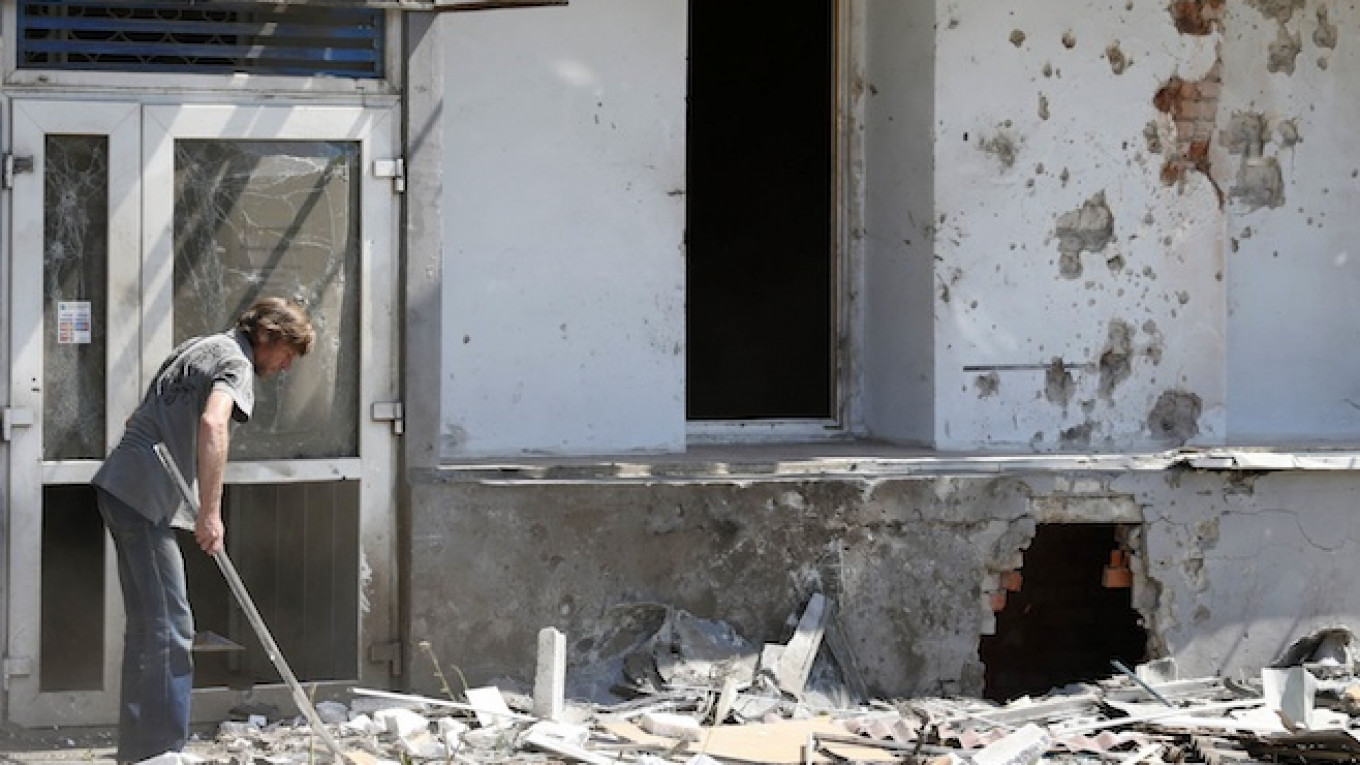Russia said a convoy of 280 trucks carrying humanitarian aid set off for Ukraine on Tuesday, amid Western warnings against using help as a pretext for an invasion.
With Ukraine reporting Russia has massed 45,000 troops on its border, NATO said there was a "high probability" that Moscow could intervene militarily in the country's east, where Kiev's forces are closing in on pro-Russian separatists.
Western countries believe that Russian President Vladimir Putin, who has whipped up the passions of Russians with a nationalist campaign in state-controlled media since annexing Crimea from Ukraine in March, could now send his forces into the east to head off a rebel defeat.
ITAR-Tass news agency said the convoy had departed from near Moscow, which means it would take it a couple of days to arrive in east Ukraine, about 1,000 kilometers to the southwest.
"It has all been agreed with Ukraine," Business FM radio quoted President Vladimir Putin's spokesman, Dmitry Peskov, as saying.
In Kiev, a government source, who did not wish to be named, said there had been no agreement for Russian vehicles to cross into Ukraine. Kiev backs a broad international mission including the U.S. and the European Union alongside Russia, under the aegis of the International Committee of the Red Cross (ICRC).
"There is no agreement from the Ukrainian side for Russian vehicles to enter Ukrainian territory. The Red Cross is looking for transport companies that will take over the issue of delivering humanitarian cargo to the east also from the U.S. and the EU," the source said.
There had been broad agreement that the Red Cross would take over all organisational and logistical questions for the international mission, a separate statement from the administration of Ukrainian President Petro Poroshenko said.
Thousands of people are believed to be short of water, electricity and medical aid due to the fighting. U.S. President Barack Obama said that any Russian intervention without Kiev's consent would be unacceptable and violate international law.
European Commission President Jose Manuel Barroso also warned Monday "against any unilateral military actions in Ukraine, under any pretext, including humanitarian."
Russian state television Rossiya 24 showed several heavy white trucks departing from the town of Alabino near Moscow.
A Rossiya 24 correspondent at the scene said the convoy should arrive at the Ukrainian border in two to three days where it would meet a representatives of the ICRC.
Russia has said the aid would be delivered together with the ICRC.
The ICRC said Monday that it had submitted a document to Russian and Ukrainian officials. However, the independent agency said it needed agreement from all parties as well as security guarantees to carry out the operation, as it does not use armed escorts.
"The practical details of this operation need to be clarified before this initiative can move forward," said Laurent Corbaz, head of ICRC operations for Europe and Central Asia.
According to UN agencies, more than 1,100 people have been killed including government forces, rebels and civilians in the four months since the separatists seized territory in the east and Kiev launched its crackdown.
See also:
Red Cross Lays Down Guidelines for Russian Aid Mission to Ukraine
A Message from The Moscow Times:
Dear readers,
We are facing unprecedented challenges. Russia's Prosecutor General's Office has designated The Moscow Times as an "undesirable" organization, criminalizing our work and putting our staff at risk of prosecution. This follows our earlier unjust labeling as a "foreign agent."
These actions are direct attempts to silence independent journalism in Russia. The authorities claim our work "discredits the decisions of the Russian leadership." We see things differently: we strive to provide accurate, unbiased reporting on Russia.
We, the journalists of The Moscow Times, refuse to be silenced. But to continue our work, we need your help.
Your support, no matter how small, makes a world of difference. If you can, please support us monthly starting from just $2. It's quick to set up, and every contribution makes a significant impact.
By supporting The Moscow Times, you're defending open, independent journalism in the face of repression. Thank you for standing with us.
Remind me later.






